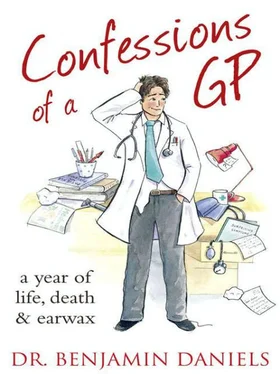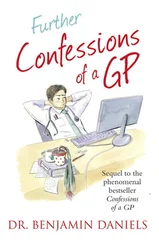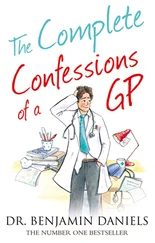• A 45-year-old woman who is extremely overweight and gets very short of breath because of her heavy smoking and large size. She did have a job in a supermarket but because it is on top of a hill she can’t get there. She is making no effort to stop smoking or to lose weight.
What do you think of this lot? Would you sign them off? As you can see, the decisions I make on sick notes are often less related to my medical knowledge and more to do with my general sympathies towards a particular person on that particular day. When I hand out a sick note, I am basically signing that person a cheque made up of taxpayers’ money.
Am I any more qualified to make these decisions than someone with no medical training? These patients are people doctors potentially know quite well and sometimes it can be hard to say no to them. It is also very difficult to prove or disprove what they are telling us. For example, I have a patient who tells me that she can’t work because she has a panic attack every time she leaves her house. Perhaps she does. Perhaps she doesn’t. I am not going to sit outside her house and follow her into town taking photos of her having a great time in a crowded shopping centre. Physical symptoms are equally difficult to disprove. If a patient tells me that he has back pain, who am I to disbelieve him. He may have multiple normal scans, X-rays and examinations, but if he tells me that his back hurts and he can’t work, do I have the right to call him a liar? We are taught to listen to our patients and try to do our best for them. It is very difficult all of a sudden to start distrusting them and try to catch them out.
Although I do have patients trying to pull the wool over my eyes, most of my patients who are requesting a sick note or claiming disability payments are doing so genuinely. They have an illness or disability and need some medical documentation to verify this so that they can get some money to live on. Most people do actually want to return to work as soon as possible. Whatever our job, we generally moan about it and look forward to having some time off for a few weeks a year, but ultimately most of us want to be employed. It is partly how we define ourselves and there is a social stigma attached to not working. From a personal perspective, my job is rewarding and I feel valued. If I take time off, then I feel I am letting down my colleagues and patients. I do sometimes wonder whether my work ethic would be so strong if I had a less appealing job. If I toiled stacking shelves overnight in a supermarket for the minimum wage, I can imagine that the temptation for ‘pulling a sickie’ would be pretty strong. Perhaps I could even hoodwink my GP into writing me off work completely. I could then get close to the same pittance sitting at home on disability payments.
Most GPs hate giving out sick notes and filling in disability claim forms. They take up time and valuable appointment slots. I heard of one GP in a particularly deprived part of Wales who completely gave up trying to assess his patients’ ability to work. He used to go into his crowded waiting room each morning and ask everyone who was in for a sick note to put up their hand. Without asking any of them a single question, he would then go round and dish out a sick note to each one of them and therefore clear half of his waiting room. This allowed him to spend his morning as a doctor rather than as a clerk for the Benefits Agency.
There are many millions of people on benefits and they are costing the country billions of pounds. As a GP, I have a social responsibility to try to encourage people to work. This is partly for the good of the national economy and also because working is good for you. Evidence shows that working is beneficial to our physical health and mental wellbeing. I wish I could convey this to some of my patients on long-term sick leave. Some of my ‘disabled’ depressed patients are only in their early twenties and I know that they’ll probably never ever work. It is very sad and I don’t want to sound unsympathetic, but moping around at home watching daytime TV surely can’t be helping. When I have the energy, I do try to urge my patients to think about the positives of having a job and encourage them to get back to work. Sometimes, no matter how hard I try, they end up leaving with a sick note.
More of a moan about drug reps and the pharmaceutical industry’s cosy relationship with some doctors. I need to point out that most GPs have a healthy mistrust of the drug companies. An average GP might see a pharmaceutical rep once a week or so to find out about the new drugs on the market, but they take the presented information with a pinch of salt and are able to make their own minds up about the best drug to prescribe for their patients and the country’s health budget.
As I said earlier, most GPs now don’t get much more of an incentive to prescribe a specific drug than the odd free pen or egg sandwich. However, one or two GPs are still very much in the tight grip of the pharmaceutical companies and exhibit what I feel are blatant unethical collaborations that are not in the best interests of the patient at all. The following events happened at a surgery where I once worked.
DEXA scanners are bone scanners that look for osteoporosis. This is a disease caused by thinning of the bones that can occur in people from middle age onwards and can contribute to the likelihood of breaking a bone, particularly in later life. The scanner measures how dense the bone is. For those people at risk of having thin bones, the scanner can identify those who might benefit from taking calcium supplements and another type of medicine that can prevent bones from thinning further. These scans are available on the NHS and big studies have shown who is likely to be at risk and therefore which of our patients we should refer for scanning.
At the practice at which I was working, a drug company offered the senior partner a significant amount of money in order to allow them to scan our patients in the surgery with one of their mobile scanners. The mobile scanner is not as accurate as the big scanner that is available free of charge at the hospital. The senior partner phoned round many of her middle-aged, worried well patients and offered them a free scan at the surgery. Although they didn’t fit the criteria for being at risk of having osteoporosis, most of them jumped at the chance to have a free scan that would be conveniently done at the surgery. They also had all heard of osteoporosis and wanted to ensure that they weren’t at risk. The scanner appeared to overestimate how thin their bones were and therefore many of them were inaccurately diagnosed as having osteoporosis. These patients were then started on a medicine to keep their bones from supposedly deteriorating further. The senior partner was free to prescribe any medicine, but chose to prescribe the one that is made by the drug company that provided the scanner. This drug is considerably more expensive than other medications that are equally effective and costs the NHS £170 extra per year per patient.
I am very pleased to say that this sort of thing only still occurs in a very few practices and is being clamped down on. Our PCT has learnt a few tricks from the drug companies. We are still bribed to prescribe certain drugs but it is now the PCT that does the bribing. The practices in our local area are given targets to prescribe the cheaper drugs and if we hit the targets, we earn financial bonuses. This may seem crazy but the PCT have realised that for some GPs the only way to ensure that our drug spending is kept down is to reward us financially. The money they pay us for hitting the targets is nothing compared to the money saved by the NHS if we prescribe the cheaper generics. Yet again it feels embarrassing that doctors need financial incentives to prescribe sensibly.
Читать дальше
Конец ознакомительного отрывка
Купить книгу











![Benjamin Franklin - Memoirs of Benjamin Franklin; Written by Himself. [Vol. 2 of 2]](/books/747975/benjamin-franklin-memoirs-of-benjamin-franklin-wr-thumb.webp)
![Benjamin Franklin - Memoirs of Benjamin Franklin; Written by Himself. [Vol. 1 of 2]](/books/748053/benjamin-franklin-memoirs-of-benjamin-franklin-wr-thumb.webp)